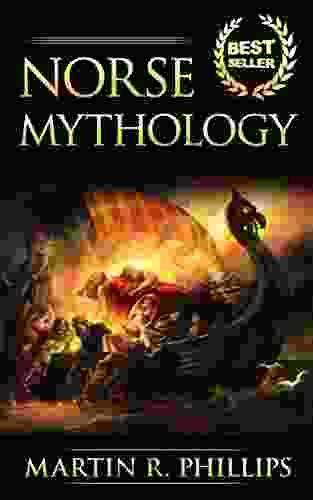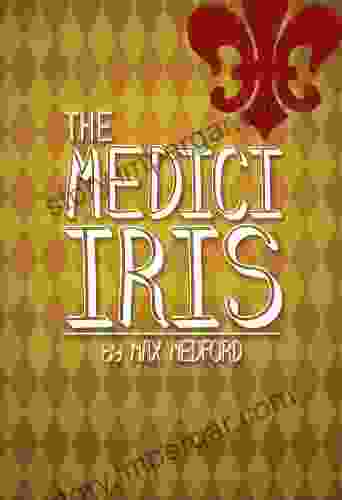How To Not Always Be Working: The Ultimate Guide to Breaking Free from Workaholism

In today's fast-paced, demanding world, it's easy to get caught up in the hustle and bustle of work. We may find ourselves working long hours, sacrificing our personal lives, and feeling constantly stressed and overwhelmed. If this sounds familiar, you may be experiencing workaholism.
Workaholism is a compulsive addiction to work that can have a devastating impact on our physical and mental health. It can lead to burnout, anxiety, depression, and even physical illnesses.
But it doesn't have to be this way! It is possible to break free from the clutches of workaholism and reclaim our lives. In this book, we will explore the causes of workaholism, identify the signs and symptoms, and provide practical strategies for overcoming this addiction.
4.2 out of 5
| Language | : | English |
| File size | : | 2313 KB |
| Text-to-Speech | : | Enabled |
| Screen Reader | : | Supported |
| Enhanced typesetting | : | Enabled |
| X-Ray | : | Enabled |
| Word Wise | : | Enabled |
| Print length | : | 103 pages |
What is workaholism? How is it different from being a hard worker?
Workaholism is a compulsive addiction to work that is characterized by:
- Obsessive thoughts about work
- An inability to control work impulses
- Persistent work despite negative consequences
Workaholism is not the same as being a hard worker. Hard workers are able to find a healthy balance between their work and personal lives. Workaholics, on the other hand, are unable to control their work impulses and often neglect their personal lives.
There are many factors that can contribute to workaholism, including:
- Personality traits: Workaholics tend to be perfectionists, overachievers, and people-pleasers. They may also have low self-esteem and feel the need to prove their worth through work.
- Work environment: Some work environments can be more conducive to workaholism than others. For example, jobs that are demanding, stressful, or competitive can make it difficult to maintain a healthy work-life balance.
- Personal life: Workaholism can also be a way to cope with personal problems, such as relationship issues, financial difficulties, or stress.
Do you think you might be a workaholic? Here are some of the signs and symptoms:
- You work excessively long hours.
- You find it difficult to take time off work.
- You neglect your personal life and relationships.
- You feel anxious or stressed when you're not working.
- You have difficulty sleeping and concentrating.
- You experience physical symptoms, such as headaches, stomach aches, and fatigue.
If you identify with several of these symptoms, you may be struggling with workaholism.
Workaholism can have a devastating impact on our physical and mental health. It can lead to:
- Burnout: Workaholism can lead to burnout, which is a state of physical, emotional, and mental exhaustion. Burnout can make it difficult to concentrate, make decisions, and cope with stress.
- Anxiety and depression: Workaholism can also lead to anxiety and depression. When we're constantly working, we don't have time for the things that make us happy and relaxed. This can lead to feelings of isolation, sadness, and hopelessness.
- Physical illnesses: Workaholism can also lead to physical illnesses, such as heart disease, stroke, and diabetes. When we're constantly working, we don't have time to take care of our health. This can lead to a weakened immune system and an increased risk of illness.
If you're struggling with workaholism, there is hope. It is possible to break free from this addiction and reclaim your life. Here are some tips:
- Identify your triggers. What situations or people make you want to work excessively? Once you know your triggers, you can start to avoid them or develop strategies for dealing with them.
- Set boundaries. Set clear boundaries between your work and personal life. Stick to your boundaries and don't let work creep into your personal time.
- Take breaks. It's important to take breaks throughout the day, even if it's just for a few minutes. Get up and move around, or take a few deep breaths.
- Delegate and ask for help. Don't try to do everything yourself. Delegate tasks to others and ask for help when you need it.
- Learn to say no. It's okay to say no to additional work or commitments. Protect your time and energy.
- Take care of yourself. Make sure you're getting enough sleep, eating healthy foods, and exercising regularly. Taking care of yourself will help you to better manage stress and avoid burnout.
- Seek help. If you're struggling to overcome workaholism on your own, seek professional help. A therapist can help you to identify the root of your workaholism and develop strategies for recovery.
Workaholism is a serious addiction that can have a devastating impact on our lives. But it is possible to break free from this addiction and reclaim our lives. By understanding the causes, symptoms, and consequences of workaholism, and by following the tips in this book, you can overcome workaholism and create a healthier, more balanced life.
4.2 out of 5
| Language | : | English |
| File size | : | 2313 KB |
| Text-to-Speech | : | Enabled |
| Screen Reader | : | Supported |
| Enhanced typesetting | : | Enabled |
| X-Ray | : | Enabled |
| Word Wise | : | Enabled |
| Print length | : | 103 pages |
Do you want to contribute by writing guest posts on this blog?
Please contact us and send us a resume of previous articles that you have written.
 Book
Book Novel
Novel Page
Page Chapter
Chapter Text
Text Story
Story Genre
Genre Reader
Reader Library
Library Paperback
Paperback E-book
E-book Magazine
Magazine Newspaper
Newspaper Paragraph
Paragraph Sentence
Sentence Bookmark
Bookmark Shelf
Shelf Glossary
Glossary Bibliography
Bibliography Foreword
Foreword Preface
Preface Synopsis
Synopsis Annotation
Annotation Footnote
Footnote Manuscript
Manuscript Scroll
Scroll Codex
Codex Tome
Tome Bestseller
Bestseller Classics
Classics Library card
Library card Narrative
Narrative Biography
Biography Autobiography
Autobiography Memoir
Memoir Reference
Reference Encyclopedia
Encyclopedia Martin Barker
Martin Barker Sharon Osbourne
Sharon Osbourne Ph D Jagannath B Lamture
Ph D Jagannath B Lamture Samantha Geimer
Samantha Geimer Vasudha Sharma
Vasudha Sharma Nicola Lees
Nicola Lees Sandra Calder Davidson
Sandra Calder Davidson Ravi Jain
Ravi Jain Stephen Charles
Stephen Charles Wayne P Hughes
Wayne P Hughes Robert Herskovitz
Robert Herskovitz Marcia Elder
Marcia Elder John Reardon
John Reardon R B Wernham
R B Wernham Moshe Ziv
Moshe Ziv Mary Gribbin
Mary Gribbin Marion Lennox
Marion Lennox Matt Simon
Matt Simon Matthew Sparke
Matthew Sparke Medha Michika
Medha Michika
Light bulbAdvertise smarter! Our strategic ad space ensures maximum exposure. Reserve your spot today!

 Ernest ClineDiscover The Ancient Secrets Of Norse Mythology Vikings Viking Mythology Gods
Ernest ClineDiscover The Ancient Secrets Of Norse Mythology Vikings Viking Mythology Gods
 Gerald BellUnveiling the Secrets of Welsh Tattoo Art: A Comprehensive Guide to The Welsh...
Gerald BellUnveiling the Secrets of Welsh Tattoo Art: A Comprehensive Guide to The Welsh... Douglas AdamsFollow ·18.5k
Douglas AdamsFollow ·18.5k Oscar BellFollow ·5.6k
Oscar BellFollow ·5.6k Barry BryantFollow ·16.6k
Barry BryantFollow ·16.6k Richard AdamsFollow ·19.4k
Richard AdamsFollow ·19.4k Walter SimmonsFollow ·5.9k
Walter SimmonsFollow ·5.9k Larry ReedFollow ·4.4k
Larry ReedFollow ·4.4k Ian MitchellFollow ·16.6k
Ian MitchellFollow ·16.6k Tyrone PowellFollow ·19.1k
Tyrone PowellFollow ·19.1k

 Roberto Bolaño
Roberto BolañoUnveiling the Beauty and History of the Medici Iris: A...
In the realm of...

 Theodore Mitchell
Theodore MitchellImproving Gut Health in Poultry: Unlocking the Path to...
In the ever-evolving field of...

 Victor Hugo
Victor HugoPersonalized Medicine with a Nanochemistry Twist:...
The future of healthcare...

 George Martin
George MartinA Year Of Wine: Perfect Pairings Great Buys And What To...
## Year of Wine: An Epic Journey Through the...

 Tom Hayes
Tom HayesDelve into the Enigmatic World of Southern Africa's...
Embark on a captivating journey through the...
4.2 out of 5
| Language | : | English |
| File size | : | 2313 KB |
| Text-to-Speech | : | Enabled |
| Screen Reader | : | Supported |
| Enhanced typesetting | : | Enabled |
| X-Ray | : | Enabled |
| Word Wise | : | Enabled |
| Print length | : | 103 pages |










